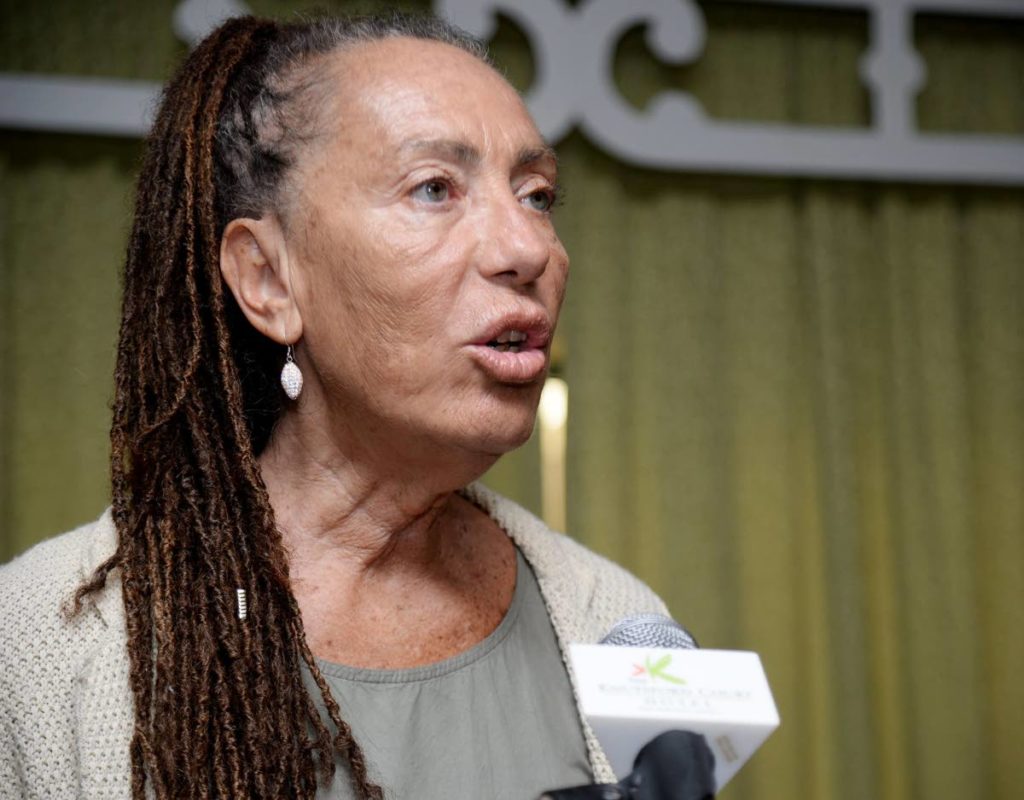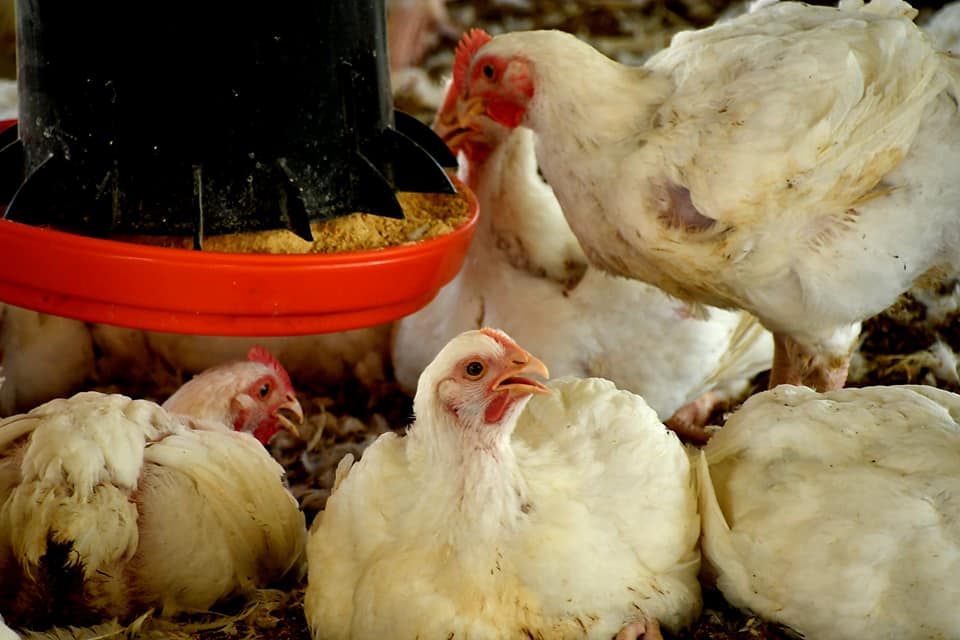

With some 3,700 inmates behind bars in the Jamaican penal system, a renewed discourse around meaningful engagement, the efficacy thereof, and rehabilitation, is homing in on prison labour to address recidivism.
Additionally, as Jamaica grapples with rising costs to feed its inmate population, Carla Gullotta, executive director of human rights organisation Stand Up for Jamaica (SUFJ), is making a case that both issues can be managed in a pilot experiment.
Gullotta, in an interview with Our Today on Wednesday (May 4), noted that there were previous attempts at prison labour by the Department of Correctional Services (DCS), an agency under the Ministry of National Security, which she hopes could soon be revived with targeted focus.
“Well, there has been sort of a conversation, which has been developing on three specific items: entrepreneurship, rehabilitation and reintegration—and I think the three elements are key [because] together, they should redesign the idea of detention,” Gullotta began.
“Rehabilitation and work, they go very much hand in hand. Let’s reason together… people commit a crime [and] break the law. Therefore, they need punishment, and they are punished with a sentence,” she added.
Gullotta was cognizant that there are security risks involved in any application of prison labour, but disagreed with public sentiment that most inmates are ‘hardened criminals’, as the data suggest the average sentence is around 1.5 to four years.
“Those [like murderers] who are detained for a very long time are not the majority,” she said.
In her eyes, the Government of Jamaica will have to exhibit sustained creativity in its drive to fight crime and violence. One way to achieve this, the SUFJ director told Our Today, is by incentivising inmates away from the criminal underbelly of society.

“So, prison time should be a working time, in a way to provide those people with instruments which should prevent them from committing another crime once they leave the institution,” Gullotta argued.
“Using custodial punishment as a building block, you can punish someone in a useful way [instead of] in a way that they go back into society worse than they were coming in. The idea is, use the time and give [inmates] some tools,” she told Our Today.
The tools, according to Gullotta, include but are not limited to education, professional skills training and psychosocial development. She admitted the Government was already active in this regard, though it could be expanded.
On the matter of education, the SUFJ director acknowledged the stellar progress made by the Ministry of National Security in offering classes to prisoners from the remedial to CXC level. She attested to inmates who left the prison system with up to seven CXC subjects, which she considered very encouraging.
Gullotta also cited the February 2022 milestone, which now sees the University of the Commonwealth Caribbean (UCC) offering associate degrees to inmates and correctional officers annually for the next two years.
Gullotta conceded that regularly—with Jamaica’s labour market being so competitive and oftentimes only resulting in dismal prospects—the Government could greater control the number of repeat offenders by upskilling prisoners, as the likelihood of an ex-convict being gainfully employed is woefully low.
The training, Gullotta argued, does not have to be exclusive to trades such as welding, plumbing and carpentry, but could include more modern skills like sound engineering, computer repairs, graphic design, printing press and data entry.
The most critical detail in getting inmate rehabilitation right is psychosocial support, Gullotta told Our Today.
“[We have to] try to work with them; teach them to control their emotions, to not allow anger to overwhelm them,” the SUFJ director explained.
Gullotta was spurred to reposition prison labour amid a March 13 Jamaica Observer report that claimed the average inmate cost taxpayers $13,000 per month, which the DCS dismissed as “erroneous”.
The DCS, in a March 21 statement a week later, noted that the Government spent J$575,558,406 or roughly $430 per day per inmate/ward during the 2020-21 fiscal year.
Gullotta is appealing for prisoners, who are considered low-security risks, to be put to work to feed themselves, thereby cutting the monthly food bill, and undertake major infrastructural projects as done in countries like Germany.
“And there are two main avenues for that. One, there is big potential at DCS with pieces of land at two low-risk institutions, Tamarind Farm and Richmond Hill—they both have a lot of land around them,” said Gullotta, as she also mentioned a green space at the Tower Street Correctional Centre where crops and small livestock were once cultivated.

“There is a bakery in Spanish Town, there is a welding and woodwork lab at Tower Street, there is another lab for women in cosmetology and other activities at South Camp Female—all of these potential activities should be developed inside the prison,” the advocate added.
Off the bat, expanding skills training would be a great gauge in determining inmates’ risk levels, and there are examples in the Caribbean to demonstrate its effectiveness, Gullotta continued.
“I visited Belize some years ago after being invited to their prisons and I was astonished! That was not a prison. I would say it was a company, because they’ve been remodelling the prisons. [Some Belizean prisons] have a block factory, and they supply 50 per cent of blocks to the nation. They also provide agricultural produce for outside markets, and they have huge craft areas where they provide all sorts of items for tourism,” she contended.

“So, my idea is, inside Jamaican prisons, there is an amount of potential activity which is not being developed at all. If you go to Tamarind Farm, less than half of the land is being cultivated. What about the rest of the land? That could go toward easing off the cost of [feeding] the inmates; they become able to produce what they eat,” the Stand Up for Jamaica executive director remarked.
To this end, Gullotta informed Our Today that the prison bakery at Spanish Town makes bread and other products in-house and shares with neighbouring institutions. She bluntly asked why this service was not being expanded.
Addressing how Jamaica could strike a balance between purposeful rehabilitation and prison labourer exploitation, Gullotta pointed to stipends or paid apprenticeships.
“We can look at the fact that we could provide a little income. You produce x and get a percentage; I don’t want to talk about numbers, I want to talk about the concept that an inmate could be able to contribute, to provide for his family. And, too often, we forget 90 per cent of prisoners have children outside. If that person can earn a little, you take some of the pressure off families and prevent them from doing illegal activities,” she said.
“I think it would be fair to consider them as labourers and, therefore, pay them. Nobody wants modern slaves; that’s not progressive and wouldn’t go for the betterment of our society. What we are to look at is always with common sense. What can we do? What are the risks? And, what can we do without exploiting people?” Gullotta queried further.
Years ago, officials at the Horizon Adult Remand Centre in St Andrew started a landscaping ‘labour programme’ for inmates which later fizzled. Just last year, however, the DCS introduced a new landscaping programme for all inmates and wards across its network of prisons and detention centres.

Gullotta wants a similar prison labour ‘taskforce’ resurrected for social infrastructure projects, such as gully cleaning and school repainting.
“As we mentioned before, we should be keenly looking at inmates who are low risk, and I know we have quite an amount. So, why don’t you use a taskforce of them to do social work? There are so many things they could be doing, and those things could be beneficial to Jamaica,” noted Gullotta.
“Allow them to earn a little money and allow the country to use this taskforce as labourers, which is not costing a fortune. It is another way of saving money and it is another way to consider serving time as something that can become useful to the country, instead of being a burden,” she told Our Today.







Comments